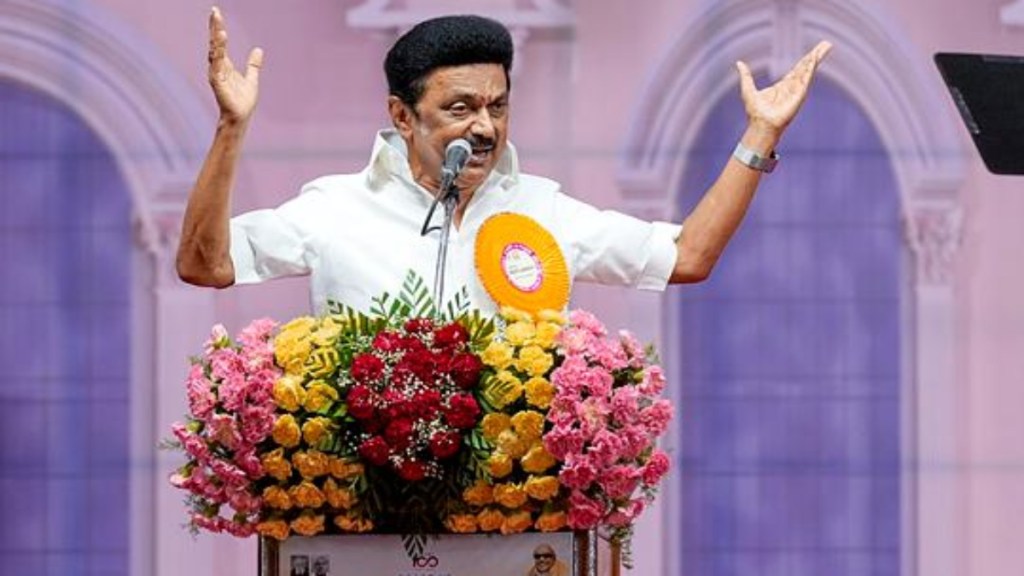Tamil Nadu Chief Minister MK Stalin has voiced his opposition to the restriction of reservations to a 50 per cent cap in both employment and education. He has called for individual states to have the authority to determine the extent of their own quota systems.
The Chief Minister emphasised that it should not be limited to 50 per cent and referred to Tamil Nadu, where reservations have historically reached up to 69 per cent. His statement came during his virtual address at the second conference of the All India Federation for Social Justice in New Delhi.
Also read: ‘Avoid debate on Sanatana Dharma’: MK Stalin to DMK workers
The president of the ruling DMK in Tamil Nadu explained that each state should have the power to determine the amount of quota based on the population of the deserving section, and accused the central government headed by the BJP of not implementing the reservation policy properly, PTI reported.
The Chief Minister contended that the power to grant reservations by apportioning them based on population proportion should rest with the state government.
Also read :‘Why was Women’s Reservation Bill brought shrouded in secrecy’: DMK MP Kanimozhi
Stalin further stated, “Therefore, it is not correct to say that reservations should not go beyond 50 per cent. Providing reservations is the right of the states, and the power should be devolved so that the respective states can give due reservations to their people.”
Taking a swipe at RSS president Mohan Bhagwat for supporting reservations, Stalin wondered where the same RSS was when the V P Singh regime, which gave social justice to the backward classes, was deposed. “Wasn’t that the same RSS?”
“Now, as the Lok Sabha election approaches, Mohan Bhagwat is talking about reservations to deceive the marginalised sections,” he remarked.
“If the BJP was really interested in social justice, then it would have implemented the 27 per cent reservation policy during its 9 years of rule,” Stalin said, adding that the BJP is against and does not want the poor, BC, SC, and tribals to progress. “That is why they are against social justice,” the Chief Minister asserted.
He urged the Central government to meet two demands made by late Chief Minister M Karunanidhi in 1973: SC quotas in central government employment and special reservations for SC and Backward Classes in government positions. He emphasized that the late M Karunanidhi played a significant role in exerting pressure on V P Singh’s government to implement the recommendations of the Mandal Commission in 1990. The V P Singh government was dethroned by the BJP.
Stalin highlighted the historical commitment of the DMK to social justice and explained that the Dravidian movement’s origins in Tamil Nadu were rooted in the pursuit of social justice and an egalitarian society. In 1922, the Justice Party, the forerunner of the DMK, instituted caste-based reservations.
“The Raja of Panagal (Panaganti Ramarayaningar, the president of the Justice Party who served as Premier of Madras Presidency) introduced the caste-based reservation and passed an order in this regard. Looking at Tamil Nadu, various states are providing social justice,” the Chief Minister said.
He asserted his role in spearheading the Dravidian movement, which aimed at providing social justice not only to the people of Tamil Nadu but also giving direction to the oppressed castes of other states in order to get their rights.
After protests in Tamil Nadu, the Indian Constitution was amended, and the First Amendment’s Section 15(4) was introduced, stating that “no section shall prevent the provision of privileges to any member of the community who is socially and educationally backward.” Stalin highlighted that this significant change prompted former Prime Minister Jawaharlal Nehru to acknowledge the “happenings in Madras” in Parliament.
“Socially and Educationally” is the definition of social justice in the Constitution. Article 340 of the Constitution of India, which empowers the establishment of the Commission for Backward Classes, defines ‘Socially and Educationally,’ he said. “That is providing reservation socially and educationally for the downtrodden is defined in the Constitution,” the Chief Minister stated.
(With inputs from PTI)
